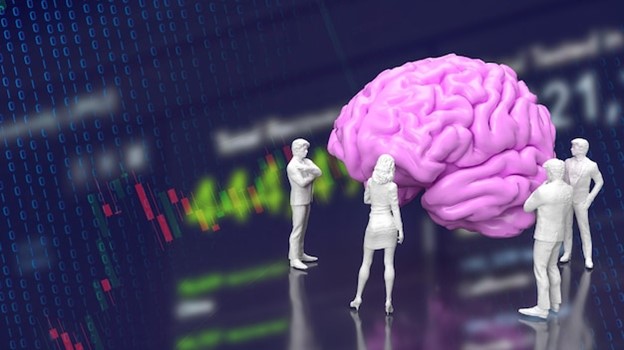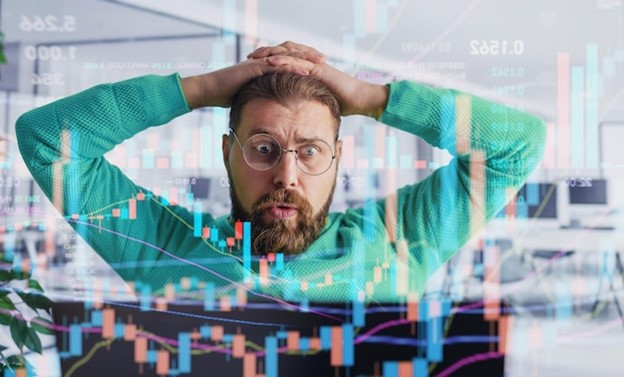


5 Great Points to Develop an Effective Trading Psychology
October 15, 2023
What makes a behavior specific to the field, like trading and investment, forms and evolves over the years, and the driven reactions and acts form psychology in that field. For example, traders and active people in the finance world and trading process have a specific way of conversation amongst themselves that has a corresponding effect within the whole market. Some behaviors and acts are based on biases, which are created by the markets’ cognition, emotion, and heuristics, which form the market psychology altogether and have a direct effect on participants’ decision-making process.
The financial markets’ psychological aspect is important for both the market and for the traders and actors in these markets because the conducted decisions ultimately volley the portfolio performance and trading results.
Table of Contents
Why do traders talk about psychology in trading?
The phenomenon that has a direct impact on trader’s psychology is the traders’ and markets’ performance, decision-making process, and the resulting success gained by the actors of the financial markets.
Two effective options affect the decision-making process: Cognitive biases and Emotional biases, which contain overconfidence bias, confirmation bias, loss aversion bias, and the illusion of control bias.
Try to defeat any cognitive bias through training and knowledge, do research, and evaluate any side and perspective of the issue.
Overcome any emotional bias by having self-confidence, launching specific trading rules and not breaking them, drawing a risk management plan, and finding liability from the other associate members of that market.
read more: Analysis of financial markets
What is trading psychology?
Trading psychology is traders’ awareness and knowledge of the psychological and emotional sides of the market that affect traders’ behavior, decision-making, and actions within the financial markets. The total psychology of the market is the result of investigating the emotions’ impacts, self-awareness, cognitive biases, mental states, and discipline on trading results.
It is clear that the traders are human beings and under the affection of a variety of psychological factors, which can cause biased reactions and thoughts, as well as some bizarre decision-making.
Self-awareness, risk management, and resilience in order to make more objective, disciplined, consistent, emotional regulation, and successful trading decisions are key factors in trading psychology that have to be recognized and noticed by the actors in this market. If a trader can develop a balanced mindset and address psychological obstacles within their preview, they can overcome market volatility and achieve profitability for a long period, also they can manage the market risks wisely.

What biases might impact traders’ acts?
It is necessary to know the biases and their effect on trading psychology. Biases are of two sorts: cognitive and emotional ones.
- The regular and accepted trend of deviation from routine human thinking ability and decision-making process is called cognitive bias. This mental passion may cause false judgments and reasoning. Limitations in processing information, social matters, or personal experiences may lead to cognitive bias. They are not born under conscious minds, but they can impact decision-making in various ways, like memory, perception, problem-solving, and attention.
- Emotional bias stands beside the cognitive bias to form the overall preview, which is the influence that feelings or mood may have on the decision-making process and result. If fear, excitement, or greed form the traders’ judgments and choices, an emotional bias has been born. Our judgments are under our emotions; they take control of our actions and have a direct influence on the risks and rewards that an individual takes.
Both cognitive and emotional biases can impact decision-making in various aspects like trading, investing, and even daily routines. They also may affect traders’ common sense, and any ability in decision-making is related to trading and financial markets. A trader should be able to control and manage these biases to make more logical decisions and develop more effective strategies for trading and other areas in life.
read more: Looking for Success in Forex Trading? Here Are 5 Things You Should Consider
5 cognitive Biases waiting for Traders
Any trader faces different occasions with cognitive biases that may deviate from their true decision-making trading results. Some of the typical cognitive biases that a trader may experience are:
- Confirmation bias is a passion for finding, translating, or deviating data about existing theories or hypotheses. Sometimes, traders tend to concentrate on information that stands in their favor, which unconsciously leads to biased trading decisions.
- The illusion of control bias is like a belief that considers other people’s attempts and control more effective than theirs. In fact, they exaggerate about other people’s abilities and influence on the market. They think the other actors are more aware of the movements, so they welcome higher levels of risks and ignore the present warning signs.
- Hindsight bias is the passion to consider the fulfilled events as they were predictable, and if they could have predicted the true tendency, they could have changed the present fact.
- Availability bias is the tendency and passion to accept the present information or experiences taken by the decision-makers. Some traders donate all their attention and care to market events or the spread of information within the market; however, they don’t seek reliable information and accept whatever comes first.
- Anchoring and adjustment bias is traders’ extreme reliance on the first information they receive when judging and estimating the market currency and trend. They refuse any change on the initial piece of information, and if they accept any, it will anchor around the very first data. However, some traders may anchor their decision-making to some other factors, such as an initial value or price, and settle their following judgments based on the new data.
Now, as a trader, you are aware of some cognitive biases you may encounter within the market. So be aware and try to touch everything that comes into your mind before implementing the decision that you have made. Enhance your objectivity, reform your analytical processes, and make more correct trading decisions.

5 Various emotional biases a trader might face
Traders are not just under the affection of cognitive biases, but also emotional biases are having a great impact on their behavior and outcomes. 5 typical emotional biases are:
- Loss aversion bias is a tendency to avoid losses over gains. Some traders are more sensitive to possible losses than gains, so they show bizarre reactions like denying to prevent the loss in any phase or trying to hold the losing position for a longer period.
- Overconfidence bias is considering other traders’ abilities, knowledge, or accuracy more than what they are in essence. As a result, some traders take on excessive risks, overtrade, or underestimate to implement a correct risk management policy.
- Self-control bias is the difficulty that a trader or an individual encounters in managing their long-term targets. Occasionally, traders aim to stick to their trading schedules by following some short-term emotions through the market’s ups and downs.
- Status quo bias is maintaining the present occasions and sticking to some familiar options. Some traders deny implementing any kind of adjustments to their trading portfolios and policy in favor of not missing familiar positions or market plans, even though there would be some beneficial movements.
- Regret aversion bias does not take actions that may cause regret, even if they seem wise and necessary. Traders are afraid of regretting their decision-making results, so they hold on to their current positions for a longer time.
Both cognitive biases and emotional biases have direct impacts on a trader’s decision-making outcomes. Traders should be aware and take wise steps to be able to manage their emotions more effectively so they can offer disciplined behavior with wise risk management policies.
How to overcome cognitive biases?
It is not difficult for a trader to overcome their cognitive biases by getting true training and education.
Educate yourself and recognize the negative effects of such bias on the decision-making process. Being aware of the consequences will offer a wide perspective and will provide a fair judgment space. Do not lean on your intuition and senses; focus on the experts’ research and objective analysis. Try to cut the biases effect on your trading behavior by using fundamental and technical analysis indicators, data, and charts.
Investigating a variety of perspectives and ideas is our advisable method to overcome cognitive biases. Taking analysts’ and traders’ advice may encourage us to surpass our biases and encourage wiser decision-making.













